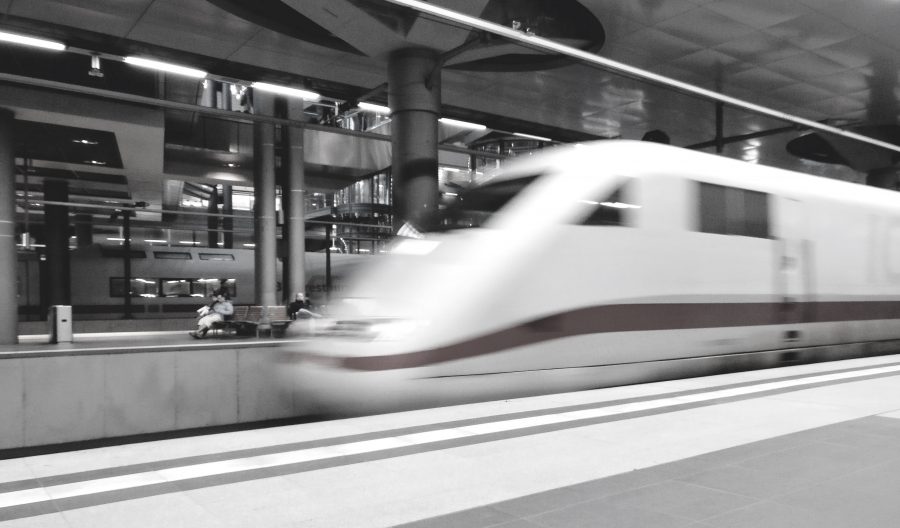The kings of Siam used to gift a white elephant to courtiers to whom they took a dislike. The elephants would be incredibly costly to maintain as they required special food and housing and it was illegal for the owner to sell them or to put them to work. What is more, the owner would have to arrange for the public to worship them. The unfortunate recipient would thus be reduced to penury.
With this in mind, one is left wondering what perceived slight successive governments believe that the people of the UK have committed to deserve to have the modern-day white elephant that is HS2 foisted upon them.
Much like the white elephants of Siam, HS2 is proving to be a huge burden on UK taxpayers. For example, the Department for Transport’s latest figures assume the total cost of the project, including rolling stock, will amount to £55.7 billion (in 2015 money). The National Audit Office calculated that the final cost for Phase One (London to Birmingham) will be £27 billion.
In a futile attempt to bring the costs under control, it was recently revealed that HS2 might be forced to cut the number of trains it runs each hour and also reduce the speed of the trains. Given the rationale behind HS2 was to improve the links between London and the North by providing high speed railway journeys, the justification for the project appears to have all but disappeared.
The famous showman P.T. Barnum, after much effort and great expense managed to purchase what he believed to be a sacred white elephant by the name of Toung Taloung. In reality,it was a dirty grey colour, with a few pink spots. As Barnum was defrauded by the King of Siam, the British people have found that they have been forced to spend a fortune on a product that fails to live up to expectations.
It’s therefore very welcome that the Chief Secretary to the Treasury, Liz Truss, has announced that she will include HS2 in a review of government projects. This follows on from her other excellent move to cap ‘golden goodbyes’ for public sector employees.
Given that we’re due a spending review at some point this year, now is a good time to think about what the government’s spending priorities should be.
Although HS2 obviously has to go, that does not mean the government should not be spending money on infrastructure projects. That’s why the TaxPayers’ Alliance launched the Great British Transport Competition to find out what the money saved by scrapping HS2 should be spent on.
Although successive governments are obsessed with the railways, it is worth remembering that UK transport is still dominated by road travel, with well over 80 per cent of journeys conducted by cars (including taxis), vans, and buses. The UK’s roads are a mess, especially in London, which has the world’s sixth most congested roads.
As well as being frustrating for drivers, congestion saps the country’s productivity and restricts labour markets, reducing the range of available jobs for employees and workers for employers, leading to less efficient job matching. Lower productivity caused by a clogged road system feeds through into slower growth and lower living standards. Indeed one study has already shown that at a certain level, congestion becomes a significant drag on economic growth.
This is not to ignore the contribution of the railways. It is vitally important to the country as rail travel is concentrated in London and other economically intensive areas. Anyone who has had the misfortune of trying to get to work by train will know how unpleasant it can be. Frequent delays and cancellations also lower productivity in much the same way as congestion on the roads.
It makes sense, therefore, for the government to scrap HS2 and spend the money on schemes to reduce congestion. This should be made a priority, with a much sharper focus on delivering infrastructure projects in a low-cost and timely fashion. A good starting point for ensuring this happens would be to follow the advice from McKinsey by improving project selection, streamlining delivery, and making the most of existing investments.
The government should also focus spending on education. There is a great deal of evidence which suggests that, as with infrastructure, “reallocating spending towards education is positive for long-run output levels”.
Human capital is playing an increasingly important role in wealth acquisition. For example, a recent paper entitled ‘Capitalists in the Twenty-First Century’ found that most top earners derive their income from human capital. Now, more than ever, human capital is a major contributing factor in wealth creation for both individuals and firms. If we want children to grow up to be wealthy, happy, and productive then we need to focus on human capital. Education – ensuring that people have the skills and knowledge they need to succeed – plays a huge role in this.
Rather than wasting even more taxpayers’ money on expensive white elephants such as HS2, the government should take time to think about what matters most. It should spend money on well thought out infrastructure projects and education. Not only would these be popular and improve the lives of countless people around the country, they would also improve productivity, increase economic growth, and mean that we all enjoy a higher standard of living.







